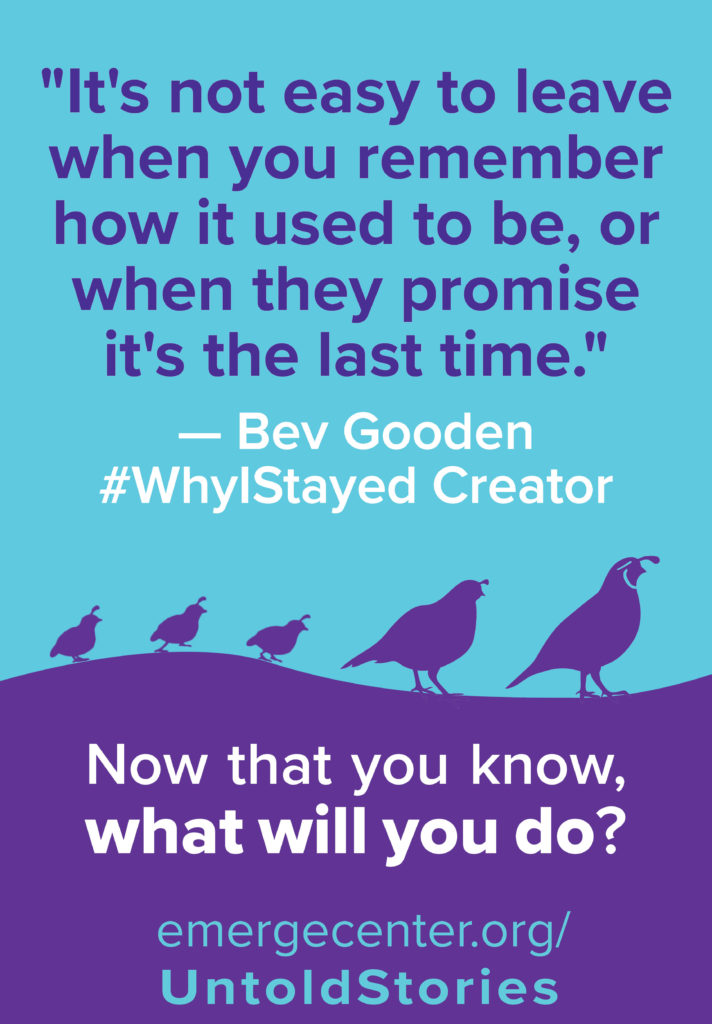
2019年XNUMX月–留下来的幸存者
When we are worried about someone we love, we react.当我们担心自己爱的人时,我们会做出反应。 In trying to protect our loved one experiencing abuse, these reactions sometimes include panic (“you need to get out now!”), tough love (“you made your bed, now you have to lie in it”), anger (“I'll give your partner a piece of my mind!”) and guilt (“think of your children!”).为了保护我们所爱的遭受虐待的人,这些反应有时包括恐慌(“您需要现在就离开!”),坚强的爱情(“您已经整理好床,现在必须躺在床上”),愤怒(“我“请让您的伴侣放心!”和内(“想您的孩子!”)。 When we react in those ways with someone experiencing abuse, we can activate feelings of shame and fear, and, intentionally or unintentionally, alienate our loved one from confiding in us about the experience they are living through.当我们以遭受虐待的方式做出反应时,我们可以激发羞耻和恐惧的感觉,有意或无意地使亲爱的人远离我们,向他们倾诉他们所经历的经历。
许多家庭虐待幸存者 爱他们的伙伴。 As a community, we have spent decades helping survivors get out of their abusive relationships—and we've spent very little time helping survivors stay safe within their relationships.作为一个社区,我们花了数十年的时间来帮助幸存者摆脱他们的虐待关系,而我们却花了很少的时间来帮助幸存者在他们的关系中保持安全。 Because of this dynamic, we've created a taboo for survivors who don't want to leave their partners or their families—and created shame about wanting to stay.由于这种动态,我们为不想离开伴侣或家人的幸存者创建了禁忌,并为想要留下留下了耻辱。
Rather than jumping to demand a specific behavior from our loved ones, the question becomes how we can best help a loved one be as safe as possible, even when they choose to stay in the relationship.问题不在于跳出要求亲人的特定行为,而是成为我们如何最好地帮助亲人,即使他们选择保持关系,也要尽可能地安全。 Let's open the discussion with our loved one to include many options, driven by the survivor experiencing the abuse.让我们与亲人一起开始讨论,在幸存者遭受虐待的情况下加入许多选择。

